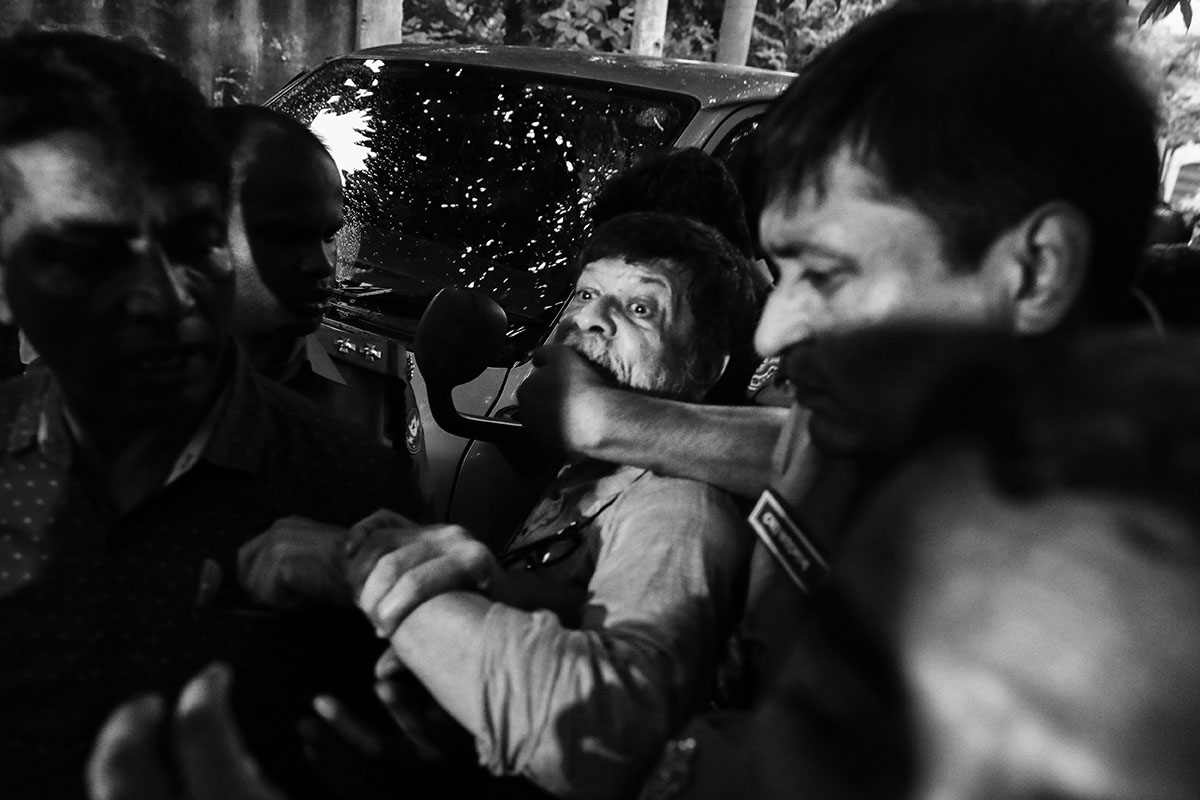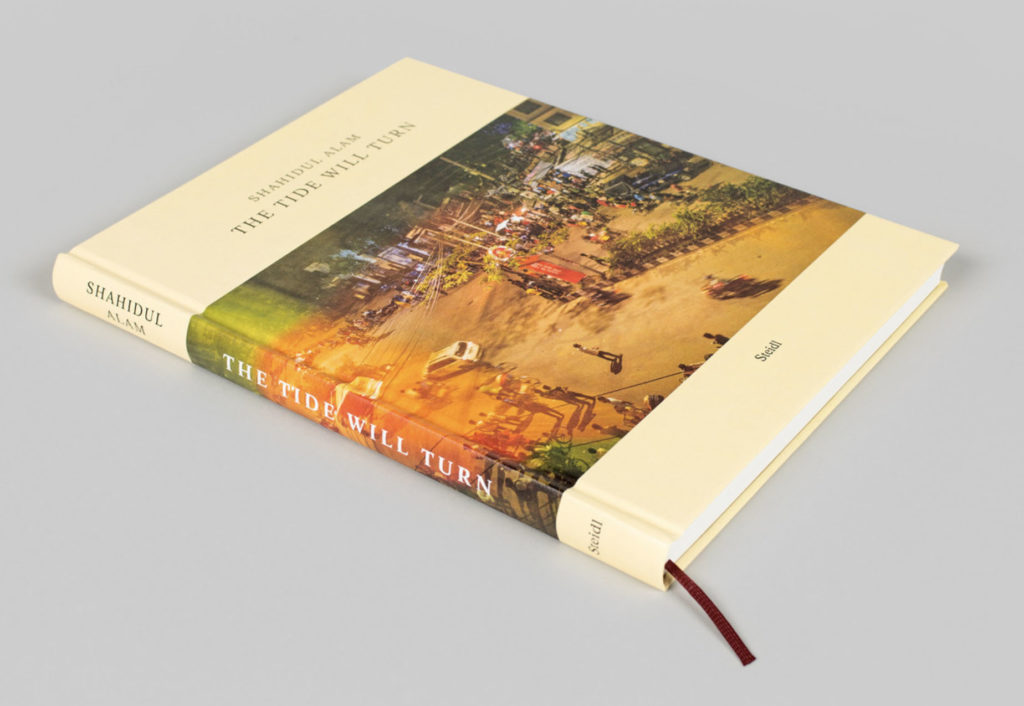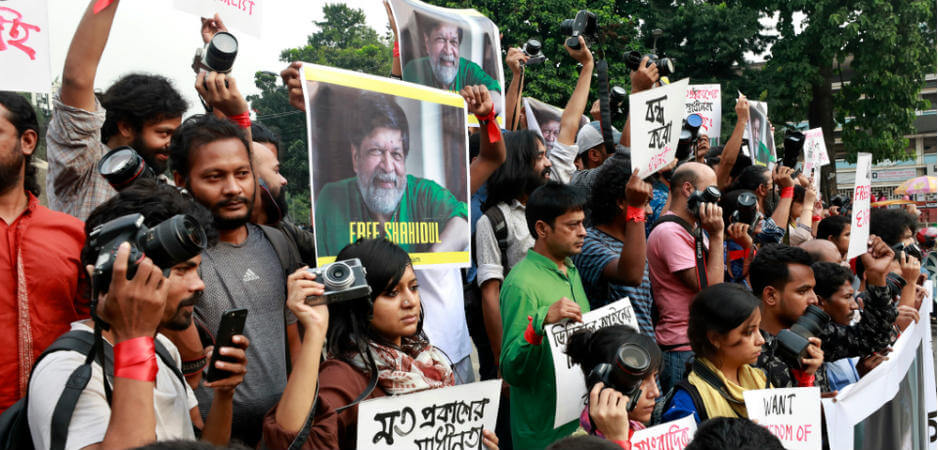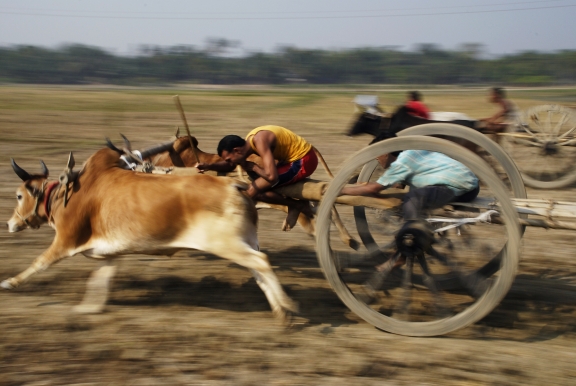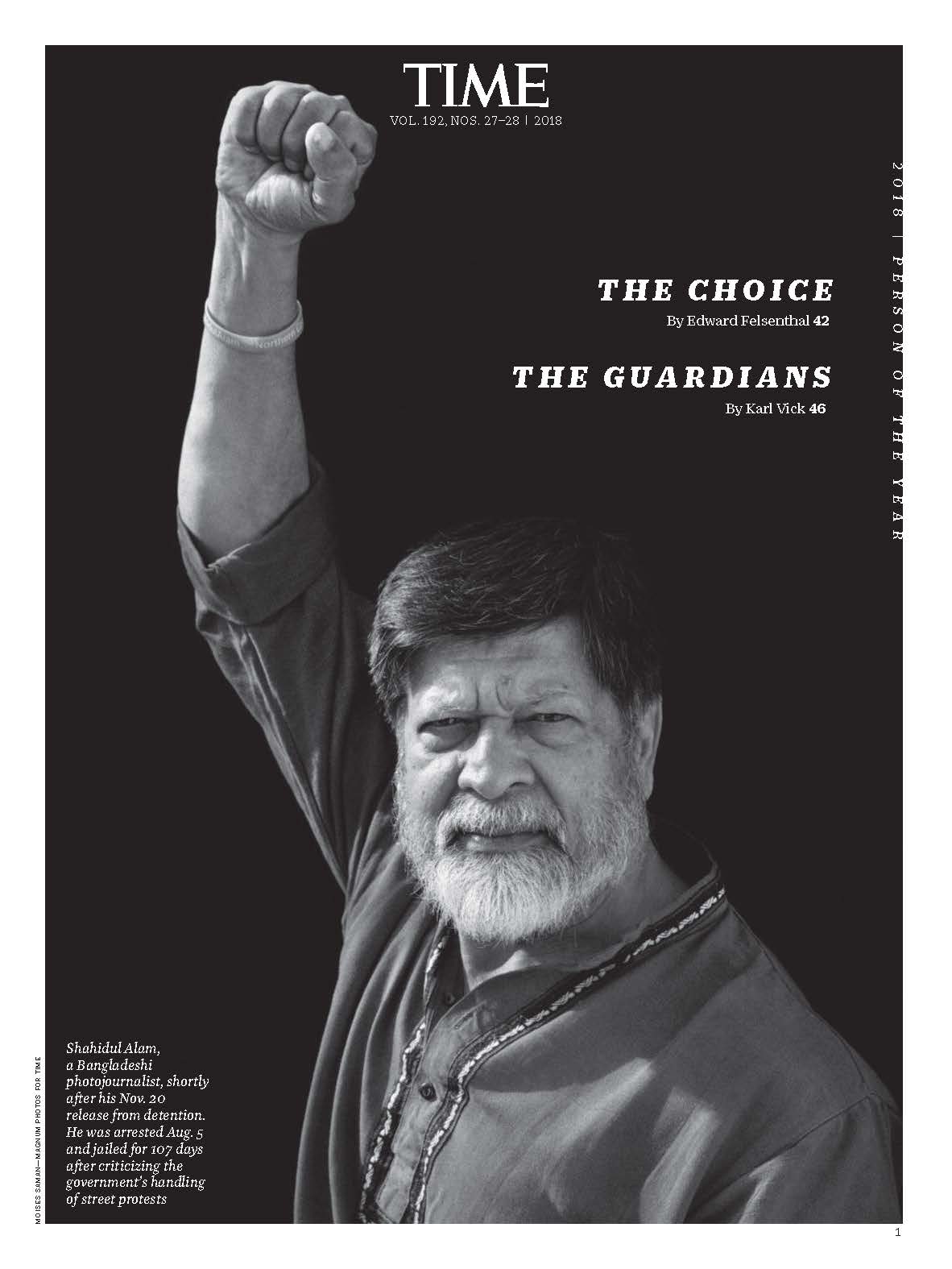In an interview with Shahidul Alam from his hospital bed, Chief Coordinator of Ganosamhati Andolon, Zonayed Saki, talks about the attack by police which left over fifty of his comrades injured. General Secretary of Biplobi Workers’ Party Saiful Haq was also injured. They were protesting the rigged elections on 30 December 2018. Opposition activists remember 30 December for the ‘Death of Democracy’.
I am Zonayed Saki. I am the chief coordinator of Gonosamhati Andolon.
Gonosamhati Andolon is a political party in Bangladesh working for the rights of people.
You all know that in Bangladesh on the 30th December 2018, the election that took place was a vote robbery.
There has never before been an election like this in Bangladesh. Most ballots were stamped the previous night, and they filled up the ballot boxes.
And the entire state machinery was used towards this vote robbery.
There has never been a previous instance where this has happened in Bangladesh, because the Prime Minister had, prior to the election, had discussions with all political parties of Bangladesh. Continue reading “Obituary of a Democracy”

